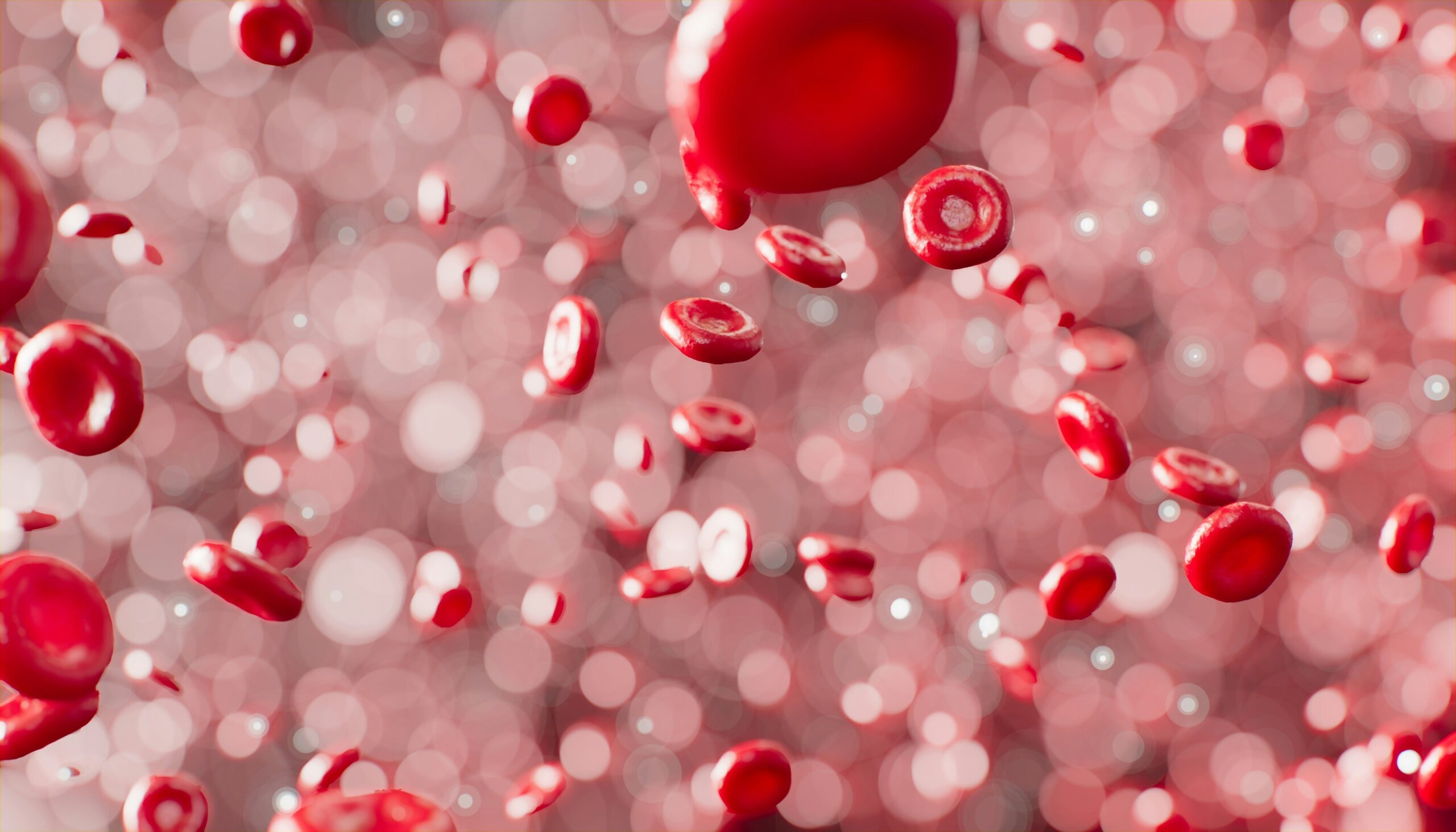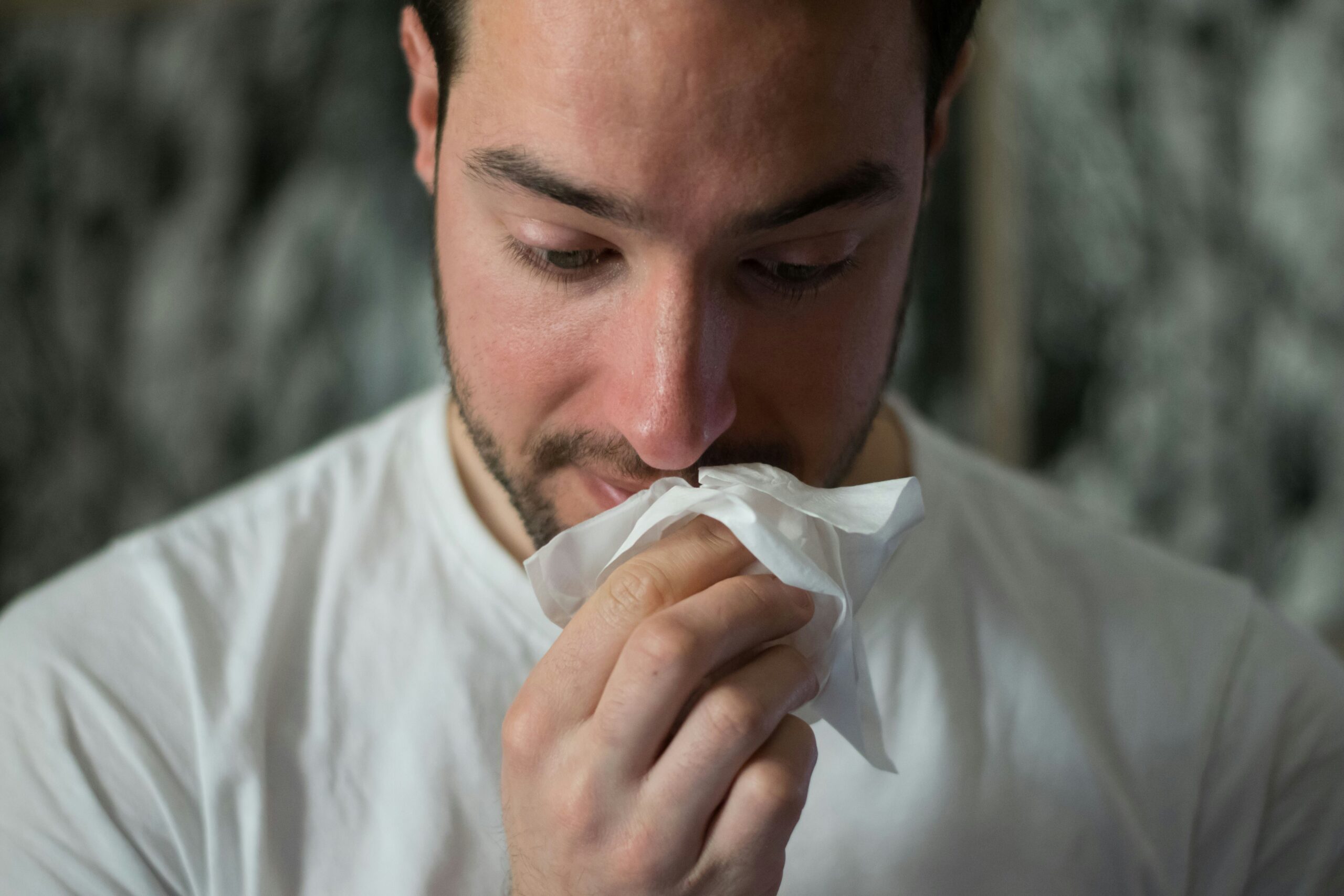A nosebleed, which doctors call epistaxis, is when blood comes from inside the nose. This can happen for many reasons, like air that is very dry or something bothering the inside of the nose; sometimes, it's because of severe health problems with how blood clots or if there was an injury in the nose before.
The thin and easily damaged blood vessels inside the nose might be affected by often picking the nose, living in dry places, or taking medicines that change how blood clots; as a result, this could lead to nosebleeds.
In many situations, a person can easily handle and take care of harmless nosebleeds using light pressure on the nose. Additionally, bending slightly forward helps to keep the bleeding under control. But if the bleeding keeps happening repeatedly, it means there is a problem that needs attention because it might show something wrong with health that needs a doctor to look at.
Kids often get irritated noses because of dry air in the winter, which makes them more likely to have nosebleeds. If we teach them how to blow their noses correctly and tell them not to pick them too much, we can help prevent this from happening a lot.
Usually, you don't have to worry too much about nosebleeds; however, if they keep happening a lot or are very bad, it's important to see a doctor. If you also feel dizzy and find breathing hard when your nose is bleeding, getting medical help is necessary. Traumatic injury causing the bleeding particularly underscores this truth.
Statistics indicate that numerous individuals experience nosebleeds at various stages; such occurrences are common and vary in frequency based on the individual's age. A person's living environment, along with their health condition, plays a significant role in determining the regularity of these incidents.
Kids often get their noses bleeding![]() because the blood veins in their noses are susceptible. These bleedings from the nose come when kids, by mistake, hurt themselves while they pick their nose or play too hard.
because the blood veins in their noses are susceptible. These bleedings from the nose come when kids, by mistake, hurt themselves while they pick their nose or play too hard.
Adults can experience nosebleeds, too, and different factors cause this. It could be due to the dryness of the air or irritation in their nasal passages. Still, it might also signal critical health issues like elevated blood pressure or conditions that alter normal blood clotting. In particularly arid climates, there's an unusual hazard as insufficient moisture in the atmosphere fails to maintain a moist environment inside their nostrils, raising the chances of bleeding from the nose.
Nosebleeds occur more often, particularly in winter and when seasons change since indoor heaters dry the air. Moreover, individuals who misuse nasal sprays or frequently pick their noses could experience increased bleeding.
Most of the time, individuals believe that nosebleeds are not severe and do not present a risk. They occur when small blood vessels inside the nose rupture due to various causes, such as overly dry air, inhaling irritants, or unintentionally injuring the nose. Generally, nosebleeds prove more inconvenient than they pose a substantial health concern.
Nosebleeds are usually not so harmful but can indicate other health issues. It is crucial to observe if nosebleeds occur frequently or repeatedly since they could suggest a concern with your blood's ability to clot, elevated blood pressure, or an abnormality within your nasal anatomy.
Nosebleeds that are severe and do not stop, called epistaxis, might need special medical care. Such instances are frequently linked to more severe health issues; hence, it is crucial to get prompt assistance from a medical professional. It is essential to address the primary cause and prevent potential problems before they occur.

Nosebleeds, or epistaxis, can stem from trivial irritants or severe medical conditions. Some typical factors include:
Identifying the underlying causes of nosebleeds to manage and prevent them effectively is essential. Persistent nosebleeds should be promptly evaluated by a medical professional, regardless of severity or accompanying symptoms. Proper treatment is crucial in addressing this issue.

Nosebleeds, also known as epistaxis, can vary in severity, but common symptoms include:
A significant sign that could be worrisome is when blood flows from the nose, which might occur on either side of the nostrils.
The nose might sometimes bleed, or the blood could go backward into the throat, feeling not good. This fluid with a lot of iron tastes like metal and can make someone feel like they want to vomit.
When a lot of blood is gone, it often leads to lower blood pressure and feelings like your head is spinning or almost passing out.
When blood goes down their throat, people may notice they swallow more often. In addition, in some instances, the nosebleed can lead to the expulsion of blood clots![]() .
.
If the nosebleed gets worse, doesn't stop, or shows other worrying signs, it's very important to get medical help quickly. There are many reasons for a nosebleed, like high blood pressure or an injury that could be small, from picking your nose too hard to bigger kinds of harm. Additionally, it is important to think about different things that might cause the problem, like being in places where there isn't much moisture in the air or having infections in the nose. If someone has nosebleeds often, they should see a doctor to find out why and get the right help.

When someone loses too much blood for an extended period, they could get anemia. This situation causes the body to be not so good at moving oxygen around and leads to extreme tiredness and feeling weak.
Often, if the nose bleeds a lot, it can hurt the soft inside parts and make tiny gaps in the nasal septum that divides the two sides of your nose. This problem might make breathing hard and cause different issues with your nose.
Not paying attention to heavy nosebleeds over time might result in blood blockages inside your nasal pathways![]() . Such a problem can interfere with the usual circulation of blood and raise the chances of catching infections. If we do not treat infections properly, they may move to other parts of the breathing or sinus systems, leading to more severe health problems.
. Such a problem can interfere with the usual circulation of blood and raise the chances of catching infections. If we do not treat infections properly, they may move to other parts of the breathing or sinus systems, leading to more severe health problems.
Furthermore, people can feel more anxious and stressed if they often have nosebleeds. This kind of stress might affect their general health and how well they live daily.
It is very important to look closely at the main reasons for nosebleeds. If they happen a lot or get worse, you need to see a doctor quickly. Handling these situations correctly can stop more problems and also help to make health better for people who often have nosebleeds.
Doctors carefully check a person's past health records and examine their body closely, perhaps doing more tests to find out the cause of frequent nosebleeds. They do all this to identify exactly where the bleeding is coming from for an accurate diagnosis.
The doctor starts the conversation by discussing the patient's health background, including past nosebleeds, any recent injuries, and long-term illnesses.
The medical worker will examine the body, examining the nose and throat and measuring blood pressure. They use а bright tool to check inside the nose for unusual bumps, swelling, or signs of disease.
Doctors also frequently perform blood tests to find problems like anemia or clotting disorders linked to nosebleeds cases.
When the first check does not find where the nosebleed comes from, doctors might ask for more deep checks, like using a special tool to look into the nose or doing CT scans.
The doctor might find a different health problem causing your nosebleed and suggest special tests. Or, you could be told to see a doctor for possible issues with your ear, throat, or blood.
Allergy testing may be considered if allergies are suspected to be a contributing factor.
Nosebleed treatment is a simple procedure that can be done at home. To do this, start sitting up and lean forward slightly. This will prevent blood from flowing to the back of the neck. Press the nostrils for 10 minutes to constrict the blood vessels and stop the bleeding. Do not tilt your head back when swallowing blood. Applying a cold compress to the nose helps reduce blood flow by dilating the blood vessels.
In addition, breathing through the mouth can reduce the pressure in the nose. Stress or anxiety can make your nose bleed more, so it's important to stay calm during this process. If bleeding continues after 10 minutes of continuous pressure, we recommend visiting your doctor. Sometimes, healthcare professionals may use nasal sprays, which tighten the blood vessels to stop bleeding.
If your hospital or small clinic has an urgent care center, your healthcare provider may use a special device to treat the nose or use cotton to apply pressure to the bleeding site. This helps stop blood flow and narrows the small blood vessels. The most common available treatment options for nosebleeds include:
A nasal decongestant: A decongestant is a device or heating substance that blocks the nose when gentle pressure and a bandage are not enough to stop the bleeding bleeding
Nasal packing: For more serious conditions, your doctor may stuff your nose with sterile products such as straws or special nasal sponges![]() . This method works because it puts pressure on the blood vessels and helps the blood clot.
. This method works because it puts pressure on the blood vessels and helps the blood clot.
Medications: Medications applied directly to the skin, such as those that narrow blood vessels or antibodies, can prevent and prevent bleeding.
Nose Surgery: If you experience excessive nosebleeds due to conditions such as a deviated septum or a nasal tumor, your healthcare professional may recommend surgery to correct these problems.

Certain situations necessitate immediate emergency medical attention for a nosebleed; these scenarios include:
If you press on your nose because it is bleeding and the bleeding does not stop for 20 to 30 minutes, this might indicate a severe issue. Responding promptly in these instances and seeking immediate assistance from emergency services is crucial. Prolonged episodes of nasal hemorrhage signify a persistent and substantial health issue.
If you are feeling extremely weak or dizzy, you might faint due to losing too much blood. It's not just wise but necessary to seek assistance immediately. Doing this is crucial for avoiding damage to your health.
If a person experiences frequent nosebleeds over several days, it is crucial to consult with a physician promptly. This could indicate the presence of an underlying illness requiring immediate attention.
If your nose is bleeding, you struggle to breathe or feel а lack of air, or experience pain close to the heart area – these symptoms could indicate а severe health issue. It's essential to seek immediate emergency assistance for prompt medical care.
Pay close attention to nose bleeding due to serious accidents, such as vehicle collisions or when someone falls. It is very necessary to seek immediate medical assistance. Medical professionals must determine whether the bleeding is due to internal harm or fractures to provide appropriate care.
Individuals with existing health issues, such as disorders that cause incorrect clotting of their blood or lead them to bleed easily, alongside those who are currently undergoing chemotherapy treatments, should seek immediate medical attention if they experience a nosebleed. Such bleeding could escalate into more severe complications.
It is essential to follow certain rules to stop nosebleeds. These rules help keep the nose healthy and reduce the chances of getting hurt or irritated inside the nose. Here are some useful tips:
• Maintain Adequate Humidity: To stop nosebleeds that might happen when your nose is too dry, keep the humidity in your house at a good level. Using a humidifier will add more moisture to the air and help with this problem.
• Stay Hydrated: Consuming water hydrates the body well and keeps the inside of your nose moist, stopping it from getting irritated or bleeding easily because it's dry.
• Avoid Nose Picking: Remember that children who pick their noses too much can hurt the small blood vessels inside, which might cause nosebleeds. So, it is very important to ensure they do not put their fingers into their noses.
• Use Nasal Saline Sprays: Talking with a doctor about the best way to use saltwater nose spray![]() is very important; this talk ensures that your nose stays moist, and it also helps lower the chance of getting many nosebleeds if you use too much.
is very important; this talk ensures that your nose stays moist, and it also helps lower the chance of getting many nosebleeds if you use too much.
• Apply Nasal Ointment: Putting a small bit of petroleum jelly or saline cream on the nose inside your nostrils can help stop them from getting dry and irritated if you are in places with cold or not moist air.
• Be Gentle with Cleaning: Wash your nose carefully; do not blow hard or put things inside as it might cause hurt and start to bleed.
• Protect Against Trauma: Always be careful to avoid accidentally hurting your face and nose, especially when doing sports; this suggestion is crucial. Safety equipment not only lowers the chance of getting hurt but also dramatically decreases the chance of having a nosebleed – that's why taking steps to be safe should come first.
• Manage Underlying Health Conditions: To stop nosebleeds, it's important to control things like high blood pressure or abnormal blood clotting, so following what your doctor says about this is recommended.
• Avoid Irritants: Smoke from cigarettes and strong smells of chemicals can upset the balance in your nose, which might make it easier for you to get a nosebleed, so it is vital to stay away from these irritants.